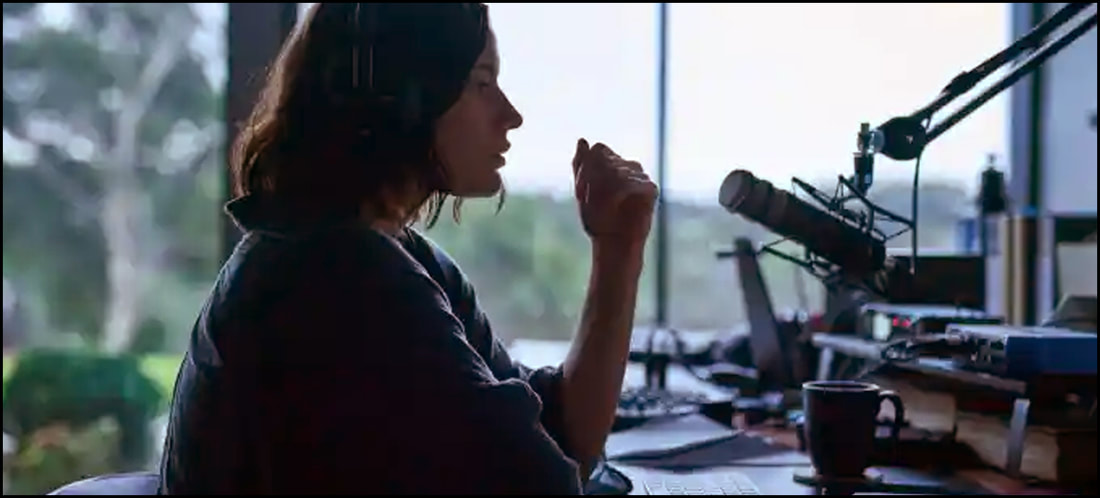Staunchly, they maintain that Gene Roddenberry’s original Star Trek deserves the crown; and up until that show’s disappointing third season I’m willing to agree with them. However, I’ve often suggested that Chris Carter’s inspired conspiracy yarn The X-Files did much more with far less than the stewards of Starfleet ever did. Plus they had a longer go at it and somehow managed to retain an astonishing degree of integrity throughout 70-80% of it. So by the volume of hours alone, I tend to give the nod to X, though – yes – Captain Kirk and company is often my comfort TV of choice when given the chance.
Not that it matters, I do tend to favor the works of Special Agents Fox Mulder and Dana Scully as well because they trampled deep into the heart of so, so, so many conspiracies … and I’ve always loved the good conundrum. Unlike Trek, X has had few authentic imitators; while some lesser attempts have given it a good sailor’s try, nothing has quite come close to capturing the magic, mystery, and mysticism of life itself. Because of The X-Files, I do tend to check out just about any like-minded theatrical projects that enter the realm of possibilities; and, thus, I was thrilled to take a gander at 2022’s Monolith at the request of Well Go USA Entertainment.
In short, the film is imperfect but in one of those mostly entertaining ways. Clocking in at an impressive 104 minutes, there’s truly only meat on them bones, though I’m not entirely certain the cast and crew stuck the landing in such a way as to please the majority of their audience. As of today’s date, it maintains (roughly) a 60 score (out of 100) amongst both critics and casual viewers; and this strongly implies to me that it almost squarely lands in that spot between good and just-above-good. Where (oh, where?) did it go wrong? I have a few ideas myself …
(NOTE: The following review will contain minor spoilers necessary solely for the discussion of plot and/or characters. If you’re the type of reader who prefers a review entirely spoiler-free, then I’d encourage you to skip down to the last few paragraphs for the final assessment. If, however, you’re accepting of a few modest hints at ‘things to come,’ then read on …)
From the film’s IMDB.com page citation:
“A headstrong journalist whose investigative podcast uncovers a strange artifact, an alien conspiracy, and lies at the heart of her own story.”
Must every journey have a destination that’s understood?
Well, film journeys that resonate with mainstream audiences typically do; and I fear a failure to answer questions clearly might very well serve as an anchor to an otherwise interesting departure that is so very much of Monolith. Essentially, it functions very much like a one-woman stage show cleverly adapted theatrically by director Matt Vesely from Lucy Campbell’s ‘nod-and-a-wink’ script. Together, they’ve conceived what looks to be a winning conspiracy but could -- depending upon one’s interpretation – might wind up being little more than a descent into madness all orchestrated by a failed journalist-turned-podcaster (played by Lily Sullivan) who is given no name … a curious choice but one that might align with the project’s preferred ambiguousness.
(Since I don’t have a name for her character, I’m just going to call her Lily.)
On the heels of a major reporting failure, Lily is shuffled from one editorial task to another, being given a chance at redemption with hosting a podcast called ‘Beyond Believable’ in which she’ll spend time exploring and/or debunking breaking stories for an online audience. Podcasts, after all, are all the rage, so why not put her investigative skills to good use in a format less likely to garner litigious inquiries? However, it doesn’t take long for the lady to find herself at the beating heart of what appears to be a global conspiracy: these supernaturally-powered black bricks have been affecting the lives of others around the world, and what does their appearance at this time and place in our history mean for all of mankind?
Well …
Here’s my central issue with all of Monolith, and it really does boil down to something relatively simple: at the outset, Vesely and Campbell establish their story is being told by what’s already been proven as an ‘unreliable narrator.’ Lily – as a journalist – is presented as fully flawed. While we’re not given the particulars involved with what appears to be a pretty horrific scandal resulting from her lack of ethics, there’s little doubt left that she committed a massive screw-up, so much so that she’s been walled off away from others and left to live out her days doing what suffices as ‘investigative reportage’ entirely in isolation. When any tale evolves from unreliable narrators, I’m suspect at each stage in the journey. Frankly, everyone should be. As a consequence, I found myself having a hard time believing the elements strategically lining up the way these did.
Sadly, there’s just no effective resolution to the story as plotted out … and – make no mistake – all of this was clearly plotted out to lead us to the final destination.
There’s an irrepressible nebulousness to the film’s MacGuffin: we never learn the truth behind these black bricks. They’re the whole reason we’re sticking with Lily’s perspective; and – depending upon one’s perspective – a theory could be proposed that they aren’t even real, the end result of some macabre kind of mass hysteria. While the visuals do harken back to the ideas and themes that may’ve elevated 1956’s stellar Invasion Of The Body Snatchers into our collective consciousness, Monolith’s finale plays out more like a fever dream wherein our chief crackpot finally lost all her marbles. Without a bit more, I can’t say more … and I do feel a bit let down with where this one left me.
I thought I was getting The X-Files.
Instead, it was a case file from the looney bin.
Lastly and to the feature’s credit, Monolith earned an extra bit of love from screenings on the film festival circuit. I don’t find that much of a surprise, frankly, as this aesthetically feels like the kind of project that might resonate a bit more strongly with fans of the avant-garde. It’s been my experience that they’re generally willing to overlook a bit of narrative deficiency only if their fancies are still tickled; and it’s very likely those audiences helped lift the project’s favorability score and viral potential in ways that paid off critically and commercially in the long run.
Success – after all – is a marathon as opposed to a sprint.
Monolith (2022) was produced by Black Cat White Rabbit Productions, The South Australian Film Corporation, and the Adelaide Film Festival. DVD distribution (for this particular release) has been coordinated by the fine folks at Well Go USA Entertainment. As for the technical specifications? While I’m no trained video expert, I found the flick’s sights-and-sounds to be exceptional from start-to-finish: director Vesely makes fabulous use of what’s basically a single-set location shoot, always finding small ways to keep the production visually distinct. Lastly, if you’re looking for special features? Well, there’s a brief making-of that feels more like a bloated commercial, but otherwise you’re left in the dark … perhaps in more ways than one.
Alas … only Mildly Recommended.
If I’m being perfectly honest with myself and my readership, I don’t like stories that leave me either hanging or guessing … but, sadly, Monolith (2022) does both. While it’s packaged and performed quite well, director Vesely and scribe Campbell leave audiences with a fade-to-black and an almost ‘you figure it out’ mentality that suggests perhaps they collectively raised more questions than they intended to answer or weren’t entirely certain themselves, so they cut-and-ran before the credits rolled. Those seeking specificity are likely going to love the build-up but be underwhelmed with the finale, though I’m guessing there won’t be any follow-up.
In the interests of fairness, I’m pleased to disclose that the fine folks at Well Go USA Entertainment provided me with a complimentary Blu-ray of Monolith (2022) by request for the expressed purpose of completing this review. Their contribution to me in no way, shape, or form influenced my opinion of it.
-- EZ



 RSS Feed
RSS Feed